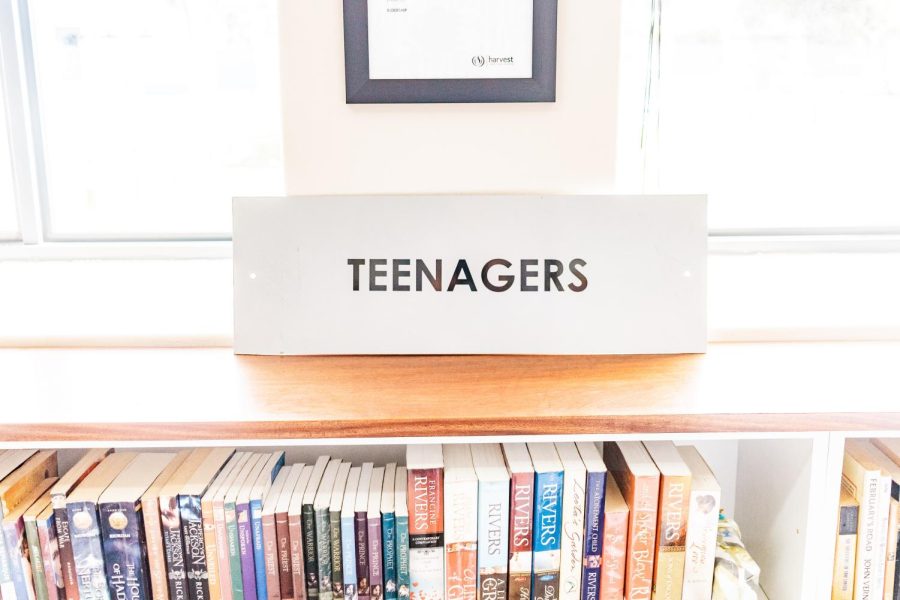Decoding literature for life lessons
More than just an assignment
June 13, 2022
Every year, in English class, students read and analyze novels, whether with passion or distaste. The completion of reading assignments, annotations, and analysis, yet may leave the impacts of these literary works unnoticed. Yet, the themes and messages embedded in each chapter, play, or poem could potentially influence one’s perspective on life, the decisions one makes, or even the career one pursues.
“The most important thing that you gather from what we read in class is a sense of the human experience, the human condition, or human nature. I think that we learn important things about social intelligence, emotional intelligence, and because we analyze the [novels], we are training our brain pathways to become critical thinkers,” said English teacher Annmarie Marusevich.
This idea is also emphasized through various pieces of literature that help understand different perspectives.
“All art has an impact on people who give it a chance. […] I mean, you have to actually read the book, you have to actually look at the piece of art, or the film, you have to listen to the music. Everything has meaning, it’s just a matter of what you can take away from it. To go along with that I think the great thing about art is that all art is based on experiences. For example, while everyone in this school goes to Commack High School, while everyone lives in this area, not everyone has the same exact background. So, [although we all read] the same book, [there are] twenty people in a room, and everyone in that room is correct about their interpretation and their understanding,” said English teacher Dr. Phillip Cicione.
Another significant result from studying these novels is a deeper understanding of the perspective of both the author and society as a whole, which is emphasized throughout the English curriculum.
“I absolutely think that the books have the potential to influence students’ perspective on the world. I guess that’s the most important thing. [For example], my class is reading Lord of the Flies, and I think they are recognizing aspects of humanity that they may not have previously thought about; in part because of their limited experience with the world as adolescents. I think that reading books, whether it’s in a classroom or not, has the opportunity to open the reader’s eyes to perspectives of the world that the reader may not be experienced with,” said English teacher Sarah Beth Vogt.
Many of the themes and messages from these books can inspire both students and teachers to become more observant of society and question the status quo.
“I think one of the [lessons] that impacted me the most that [also] tends to impact students is standing up against adversity, standing up against hardship, and as we learned earlier this year – sometimes standing up alone against a tide of whatever might be coming towards you. I think that takes a lot of courage and I think that that could also be one of the lessons that is taught in the books [in our curriculum]. People are often quite comfortable with the status quo and anything that sort of upsets that apple cart is sometimes difficult to swallow. But I think that we should embrace those things and I think that we’re here to learn and if we’re just maintaining the status quo, then how are we growing? How are we growing beyond that as human beings? Emotionally or spiritually or community wise – how are we growing?,” said Marusevich.
Teachers also play a vital role in conveying the messages of these texts.
“There’s nothing that I’m necessarily required to teach other than the obvious. I’m teaching literary techniques like characterization, setting, and maybe some symbolism. What I hope students can take away from anything that I teach them or that they are taught by other English teachers is something that can help them better understand themselves, their lives, and the world that we live in,” said Cicione.
While the selection process of these novels involves many variables that are taken into consideration.
“We have certain requirements that we need to fulfill. For example in IB, sometimes you need to make sure that you read a book from a different century, or you need to read a book that is culturally important in a culture that is different from the one in which you’re learning. Just to give you a diverse sense of what can happen. And to give you that global understanding […] I do believe that we need books with more diverse perspectives. I think that there is a need for representation in the student body of authors from different cultures. I think there’s a need for books that are translated from other languages. I think there’s a need for female representation. And I think that groups that have been marginalized – those people need to be represented as well because I think it needs to reflect who we are in our society, and we are a diverse society,” said Marusevich.
English teacher Sara Beth Vogt also comments on this topic and discusses why it is important to continue the study of these novels.
“I think the primary texts that have stayed the same since I started teaching twenty years ago are the texts that withstand the tests of time, that are absolutely still relevant texts like Lord of the Flies, texts like The Catcher in the Rye, or To Kill a Mockingbird. I think texts like that will always have a place in the curriculum because they are sort of timeless even though they were written years ago,” said Vogt.
Studying literature in school also impacted the teachers who teach them.
“I absolutely adore literature… In high school, my tenth grade honors English teacher was the reason that I became a teacher. There were just interesting projects that he did and innovative ways that we went about looking at the literature that sort of opened up a whole new world for me mentally. I got almost a high; it was very inspirational being able to pick out some meanings and read between the lines, subtext, things like that. It’s sort of like decoding. And I think the same thing of Shakespeare. Once I figured out how to decode Shakespeare, it was a whole new world that opened up,” said Marusevich.
Cicione also discusses how he was impacted by the works he read in high school.
“When I read The Catcher in the Rye when I was in high school, that was the book that changed my life. It was the book that made me want to be a reader. This book made me think to myself: I can relate to this character, I can relate to some of the things he was going through and I wanted to read more books like that. So I look at that as a pivotal moment in my life where I started to recognize that I wanted to read more books and find out more about myself,” said Cicione.
Vogt comments on how certain books, as well as her high school teacher, impacted her career and how certain books have come full circle in her life.
“[The books I read in high school impacted me] greatly. They are the reason I became an English teacher. I remember vividly reading To Kill a Mockingbird in high school. I remember vividly reading The Catcher in the Rye in high school. To Kill a Mockingbird impacted me deeply where I felt like it certainly opened my eyes to a perspective on the world. The tension in the book was not an environment that I had personally experienced. So it opened my eyes to that perspective. But, I remember very clearly reading The Catcher in the Rye in my English class and I remember that I didn’t really like it. Though I didn’t like it – I didn’t like the character, I didn’t like the narrative – the relationship with the teacher guiding me through it helped me to see its value and now fast forward more than twenty years later, here I am teaching it and have really grown to love it, a book that I started off not liking,” said Vogt.
Furthermore, Marusevich comments on the benefits of reading and how it can help students improve in all areas of study.
“For students who are interested in becoming better writers and better communicators, reading is absolutely essential. That is going to be the one thing that helps you improve as a writer. You can study vocabulary all you want and listen to your teachers’ lessons about organization of essays. But, until you read and get a sense of all the different authorial styles that are out there, you’ll never really find your niche in writing. But certainly, the more you read, the better you become,” said Marusevich.
Though not every novel may be enjoyable to every student, these works of literature that are studied by high school students could be the key to future career choices, a difference in the perception of society or simply a deeper dive into one’s self.
“A good piece of literature doesn’t have one answer. [It] can be seen differently by different people depending on when reading it to what is happening at the time,” said Cicione. 🔳




